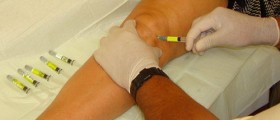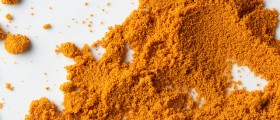Glucosamine
Glucosamine is a nutritional supplement used in humans and animals. These days, it is one of the most used supplements in the United States, together with many vitamins and minerals supplements. It is often recommended for patients suffering from joint problems like osteoarthritis and joint complications.
Glucosamine supplements compensate lack of glucosamine in the joints and protect the joints. On the market, you can find many different products containing just glucosamine and combined glucosamine and chondroitin sulfate.
This substance is produced in small quantities in the body, where it affects the cartilage. Glucosamine can repair damaged cartilage, produce new cartilage, and ease discomfort and joint pain. It is found useful in patients suffering from inflamed joints since it decreases inflammation and protects the joints.

- The American College of Rheumatology (ACR) and the Osteoarthritis Research Society International (OARSI) recommend patient education and self-management, land-based activity, and dietary weight management for those who are overweight or obese as the main therapy for knee OA. Analgesia, which includes the use of paracetamol, topical and oral nonsteroidal anti-inflammatory medicines (NSAIDs), and opioid medications, and hyaluronic acid (HA) infiltration continue to be the cornerstone of pharmaceutical treatment for symptomatic OA. Nevertheless, they are accused of escalating the likelihood of unfavorable occurrences in the gastrointestinal or cardiovascular systems as they solely concentrate on symptomatic relief rather than curing the sickness.
- This is why symptomatic slow-acting drugs (SYSADOAs), which can alleviate the clinical symptoms of OA with superior tolerance and safety profiles, have recently made waves. One of these is glucosamine, a natural substance that ranks among the body’s most common monosaccharides. For more than 50 years, it has been used as a medication to treat OA. Most scientific societies in Europe, but not those in the United States, suggest glucosamine for the treatment of knee problems. Glucosamine sulfate (GS) is one of two medications regarded as a first-line pharmacological treatment for slow-onset, medium- to long-term control of symptoms, following The European Society for Clinical and Economic Aspects of Osteoporosis and Osteoarthritis (ESCEO) advice for the prolonged use of SYSADOAs.
- The primary goal of our systematic review study is to evaluate the effectiveness and safety of glucosamine based on recent studies. Electronic databases such as PubMed, Scopus, and Cochrane were used to assess the randomized controlled trial (RCT). From the beginning through March 2023, the papers were checked, and if they fulfilled the inclusion criteria, they were then examined. The Western Ontario and McMaster Universities Osteoarthritis (WOMAC) and Visual Analog Scale (VAS) scales were considered the main outcome measures.
- A total of 15 studies were selected. Global pain was significantly decreased in comparison to placebo, as measured by the VAS index, with an overall effect size of standardized mean difference (SMD) of ?7.41 ([95% CI] 14.31, 0.51). The WOMAC scale confirmed that pain, stiffness, and physical function had improved, however the effects were insufficient. A statistical update also revealed that there were no reports of serious medication interactions or significant adverse events.
Using Glucosamine
Many people use these supplements and don’t have any adverse effects. However, patients sometimes complained about certain problems related to the glucosamine. The most common side effects of glucosamine supplements include headaches, dizziness, and, in some cases, skin problems and sleeping issues.
There were also sporadic cases of different stomach problems, such as heartburn, stomachache, abdominal pains, constipation, or diarrhea and gasses. Some patients reported nausea and vomiting when using glucosamine.
Probably the most important and most serious adverse effect is a potential risk of internal bleeding. That’s why people using anti-platelet or anti-clotting medication shouldn’t be using glucosamine. Patients with some other blood problems should also avoid using this supplement for the same reason.
Glucosamine can interact with many medications and cause side effects. Chemotherapy drugs, acetaminophen, and diabetic medications used with glucosamine might cause internal bleeding. Even though glucosamine has side effects, and some of them might look pretty serious, this supplement has never caused any lethal consequences. To avoid glucosamine side effects, always carefully follow the instructions and dosage given by your doctor.
Warning
People suffering from shellfish allergies mustn’t use glucosamine, since, it is made of shellfish tissue and may cause severe medical problems for them. Diabetic patients should also be very careful with glucosamine supplements. All glucosamine products are derived from glucose and might worsen diabetes symptoms.
The same rule applies to patients having kidney-related problems, asthma, prostate cancer, or hypertension (high blood pressure) – all these patients shouldn’t use glucosamine. Avoid combining other supplements with glucosamine, especially if they contain garlic, ginkgo biloba, red clover, or vitamin E. Glucosamine is not suitable for children, pregnant women, or mothers who are breastfeeding.

















Your thoughts on this
Loading...